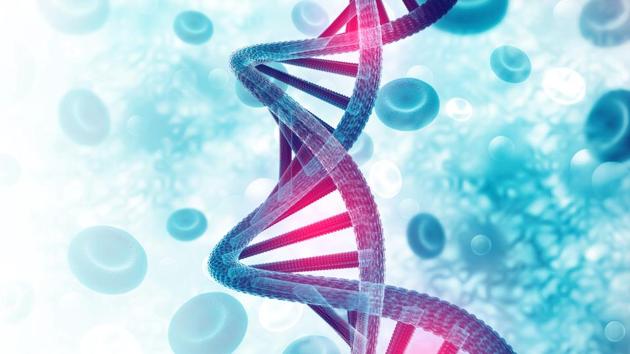Gene editing: Medical board drafts new laws
Human germline engineeringn involves deliberately changing the genes passed on to children, creating genetically modified people. Considered taboo for safety and social reasons, it is prohibited in many countries.
New Delhi Gene editing technology cannot be used for germline engineering or any genetic modifications that can be passed on to the next generation, according to draft guidelines released by on Friday.

Human germline engineeringn involves deliberately changing the genes passed on to children, creating genetically modified people. Considered taboo for safety and social reasons, it is prohibited in many countries.
The draft guidelines also prohibit the use of gene editing to induce unnatural advantages like enhanced physical functions or selection of particular traits to create designer babies, according to the draft. “All such applications are prohibited unless scientific or ethical justification can be provided which is acceptable under socio-ethical norms and the laws of the land,” the draft says.
The draft guidelines were developed by the Indian Council of Medical Research in consultation with the Department of Biotechnology and the country’s apex drug regulator, the Central Drugs Standard Control Organisation. The draft has been put up in the public domain for comments and suggestions for a week until August 1.
“Gene therapy is a fairly new field and in India there are just a few innovations that are at a stage to go into trials. This is a pre-emptive step by the government to ensure that there is a framework in place. These guidelines will streamline the processes and help researchers and scientists as well as the regulatory authorities,” one of the people who drafted the guidelines said on condition of anonymity.
These guidelines will be useful in preventing a situation like the one in China where a lax regulatory environment allowed a scientist to alter the genetic makeup of the zygote of a pair of twins last year.
The draft also proposes setting up an independent body of experts in biomedical research and gene therapy called Gene Therapy Advisory and Evaluation Committee (GTAEC) that will oversee scientific and ethical evaluations of proposed therapies.
“These guidelines facilitate the processes; it ensures that when a new drug comes up for clearance, the regulatory authorities know what needs to be done. This needs to be taken up in a big way as it will help us in treating people with genetic and rare diseases. In fact, the first application for a trial of gene therapy for haemophilia has been submitted by a DBT institute,” said Dr Renu Swarup, secretary, department of biotechnology (DBT).
Gene therapy products will be considered “new drugs” under the New Drugs and Clinical Trial Rules, 2019 and the final approval will come from the CDSCO.
“There are clear procedures for the approval of clinical trial and new drugs. Gene therapy is another category of drugs just like nano-pharmaceuticals etc. and we are developing guidelines for all these,” said Dr Eshwar Reddy, Drug Controller General of India.
As these therapies will modify genetic makeup, the guidelines recommend that there must be a long-term follow-up for clinical trials, at least five years. It recommends a follow-up of 10 years after marketing.
Disease-specific guidelines will subsequently, be developed as part of standard operating procedures for separate conditions like haemophilia, thalassemia, sickle-cell anaemia, lysosomal storage disorders and cancer. Lysosomal storage disorders are inherited diseases characterized by abnormal build-up of toxic materials in the body because of enzyme deficiencies.
“The guideline was developed after looking at various international regulatory framework. This might lay the groundwork for a future law on gene editing,” said one of the committee members (please clarify whether it is the same person cited above.)
The United States approved its first gene therapy products in 2017 for the treatment of childhood blindness and blood cancers. Until 2017, almost 2600 gene therapy clinical trials had been conducted n 38 countries, of which 64.9% were in the US, 23.2% in Europe and some 6.5% in Asia.






